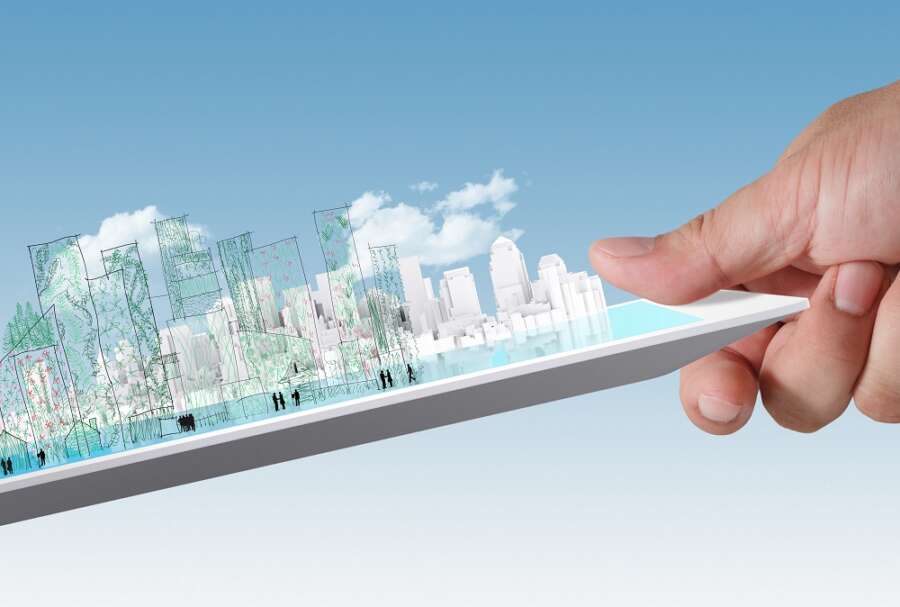
Bhushan Patil, SVP EMEA, Tech Mahindra
Businesses across all industries have faced unprecedented challenges over the last 16 months. Despite the uncertainty and unpredictability caused by the pandemic, business leaders have still managed to focus on their priorities. Many have leveraged technology to discover more efficient ways of working and have gained a new understanding of how their businesses can be transformed with technology to build a more sustainable world.
In short, the pandemic has served as an incubator, which helped businesses to embrace digital transformation far quicker than they may have originally planned and, in doing so, seize the opportunity to integrate their transformation with greater sustainability.

Bhushan Patil, SVP EMEA, Tech Mahindra
Time for action
An unexpected positive side effect of COVID-19, the acceleration in digital transformation offers a chance for businesses to strike a balance between profitability and sustainability. We are already beginning to see business priorities shift from Profit First to Profit with Purpose, and having a positive social impact. Almost every global organisation is making bold commitments to sustainability, diversity, and inclusion, faced with growing pressure from the public to take an active stance.
The positive discourse around sustainability in enterprise environments is encouraging, and all this talk needs to be backed by concrete and concerted action on the ground. It’s time for businesses to explore how they can honour their commitments in a way that is both long-lasting, and has a positive impact on their bottom line. Sustainability has developed way beyond controlling carbon emissions into a whole new paradigm of driving the business leveraging new technologies responsibly.
Technology Enabled Sustainable Business Models
The application of new technologies such as 5G, the Internet of Things (IoT), and Artificial Intelligence (AI) will play an increasingly important part in the efforts by businesses to reduce harmful emissions and move toward a zero-carbon, more resilient and future-proof economy. These technologies are key to enabling more sustainable business models, frequently associated with achieving specific business goals, for example reducing downtime and increasing safety, productivity and output.
The strength of these technologies and their benefits can be applied across any sector. Let us take the manufacturing sector as an example, where the introduction of 5G connectivity has enabled the creation of smart factories. The level of automation permitted in these settings delivers a wide range of benefits for manufacturers, including real-time linkages to customer demand forecasts, more reliable quality, predictable production capacity and lower cost of production. Productivity levels in manufacturing are boosted significantly by the heightened visibility, and increased efficiency and pace of production made possible within a smart factory environment.
Profitability and Sustainability – The Dual Impact of Responsible Use of Technology
While the business benefits are clear, the use of 5G in manufacturing must also be considered within the context of sustainability. In a recent report – A Greener Connected Future – it is shown that the greater flexibility, lower costs and shorter lead times for factory floor production enabled by the application of 5G in the manufacturing sector has the potential to take up to 40 megatons of carbon emissions out of the economy by 2035.
While this may be just one example, it serves to illustrate the dual impact that the application of technology can have across almost every sector. Moreover, it’s confirmation that there’s never been a better time to stop thinking about sustainability and profitability as conflicting goals, and start thinking of them instead as critical business priorities that coexist in harmony and allow businesses to drive equitable economic growth.
Doing the Right Thing for a More Sustainable Future
The success of the vaccination rollout and the gradual lifting of lockdown measures means there is a light at the end of the tunnel, however, as we navigate our way slowly out of the pandemic, a great deal of uncertainty still remains for today’s businesses and climate change is one among them.
Every organisation across the globe has an important role to play in reaching a net zero future. Each of these organisations needs to do the right thing — both for their customers and for the whole world — and consider how the application of new technologies can make them greener and achieve this aim.
A better connected world is a more sustainable world. The time has come to put old working models aside, and make the vision of a more sustainable future a reality.


